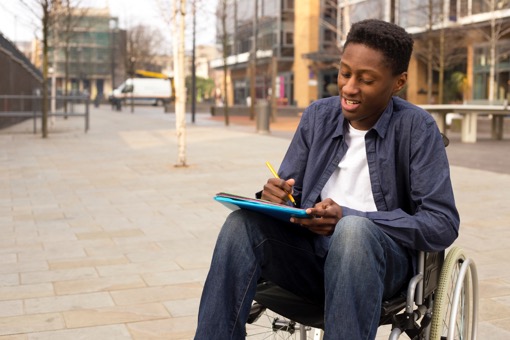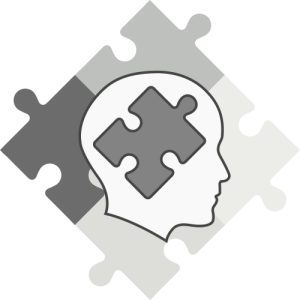Services Provided
Reconnect Psychology provides a range of therapeutic and consultative services to brain injury survivors, their families, their healthcare teams, and their legal teams. More information about these services is provided below.
Neuropsychological assessments
These assessments are different from psychological assessments. They seek to understand the cognitive effects of a brain injury, including how the client functions day-to-day in the areas of attention, memory, language, visual and spatial perception, and executive skills (these include things like their ability to plan, problem solve, and organise themselves, amongst others). Following a brain injury, the person’s behaviour and personality can be different too, often in unhelpful ways. Assessments might include one-to-one discussions with the client, discussions with the client’s family, neuropsychological tests, questionnaires, and the review of relevant reports.
Psychological assessments
These assessments are undertaken to understand the specific psychological and emotional needs of clients and their families. Often they happen before psychological therapy begins, and help us to work out which therapy may be the best to meet their personal needs. they also help the client and the therapy team understand why a problem has developed and what might be making it persist.
Psychological therapies
We provide a range of therapies, all based on scientific research and evidence. We use different therapies depending on the unique needs of each client, making sure we work with the client and respect their views about what may help.
For more information please click the arrow below.
Our Psychological Therapies Include
Acceptance and Commitment Therapy
Acceptance and Commitment Therapy (ACT) is part of the ‘third wave’ of newer CBT therapies. Because it has origins in CBT, it has some things in common with it, including helping clients to notice their thoughts, feelings and behaviour. However, it helps clients handle their problems differently to CBT. ACT helps clients to accept their feelings, step back from their thoughts and see them differently, and take action that helps them live a life they value.
Cognitive Behaviour Therapy
Cognitive Behaviour Therapy (CBT) is a therapy that helps clients to notice their thoughts, feelings, and behaviour. It helps clients to learn how these things can affect each other to keep a problem going. It also helps clients challenge negative thinking styles, manage their emotions and make positive changes to their behaviour.
Systemic Therapy
Systemic Therapy is often used to help clients, couples and families understand and manage problems. It looks at the relationships between members of a family or couple. In doing this, it explores how they each see the problem and how the ways they think and behave affect each other. The aim of this is to help them see things differently, and to behave differently toward each other, to improve the quality of their lives.
Motivational Interviewing
Motivational Interviewing (MI) helps clients who don’t feel ready to change a behaviour. It helps the client look at the reasons for wanting to change and not wanting to change, and uses methods to help the client commit to a decision. Changes in behaviour might include taking part in one-to-one therapy or other treatment, reducing alcohol or drug use, and exercising more, amongst other things.
Solution Focused Brief Therapy
Solution Focused Brief Therapy (SFBT) is used to find possible solutions to help clients overcome problems and reach their goals. It doesn’t focus as much as other therapies on the client’s past or their problem. Instead, it looks at openly talking about what changes they want to make, and how they will get there.
Functional Behaviour Assessment
Functional Behaviour Assessment is a way of understanding why a client might do things that are risky to themselves or others, or that reduces their quality of life. It looks at a client’s behaviour and the environment around them. It also looks at learning more about the client’s past. It does this by talking with people who know the client well, and who maybe see the client day-to-day. The aim is to get a useful idea about why the unhelpful behaviour is happening. It then uses that idea to make changes with the client and those around them, which help new and more positive behaviours to happen. Often, this involves working with the client, their family and their support team, to meet the client’s needs in ways that are more helpful. It might also involve asking the client or the people around them to record examples of behaviour.

Training and Consultation
We offer training and consultation to healthcare teams supporting clients, legal professionals and other organisations on a range of issues including:
- The cognitive consequences of traumatic brain injury
- Brain anatomy
- Psychological and emotional issues following brain injury
- Challenging behaviour
- Adjustment issues following brain injury
- Capacity issues
- Clinical supervision of healthcare professionals, in a one-to-one or group supervision format. Clinical supervision may focus on the cognitive, psychological or social aspects of a client’s care.
Please note, the above is not an exhaustive list. If you have any training or consultation needs, please feel free to contact us to discuss your requirements.
Mental Capacity Assessments
We have a combined experience of over two decades in conducting capacity assessments. Previous assessments have addressed a range of capacity issues, including, but not limited to:
- Capacity to make a will
- Capacity to manage property and financial affairs
- Capacity to make decisions concerning health and wellbeing
- Capacity to litigate
- Capacity to decide where to live


